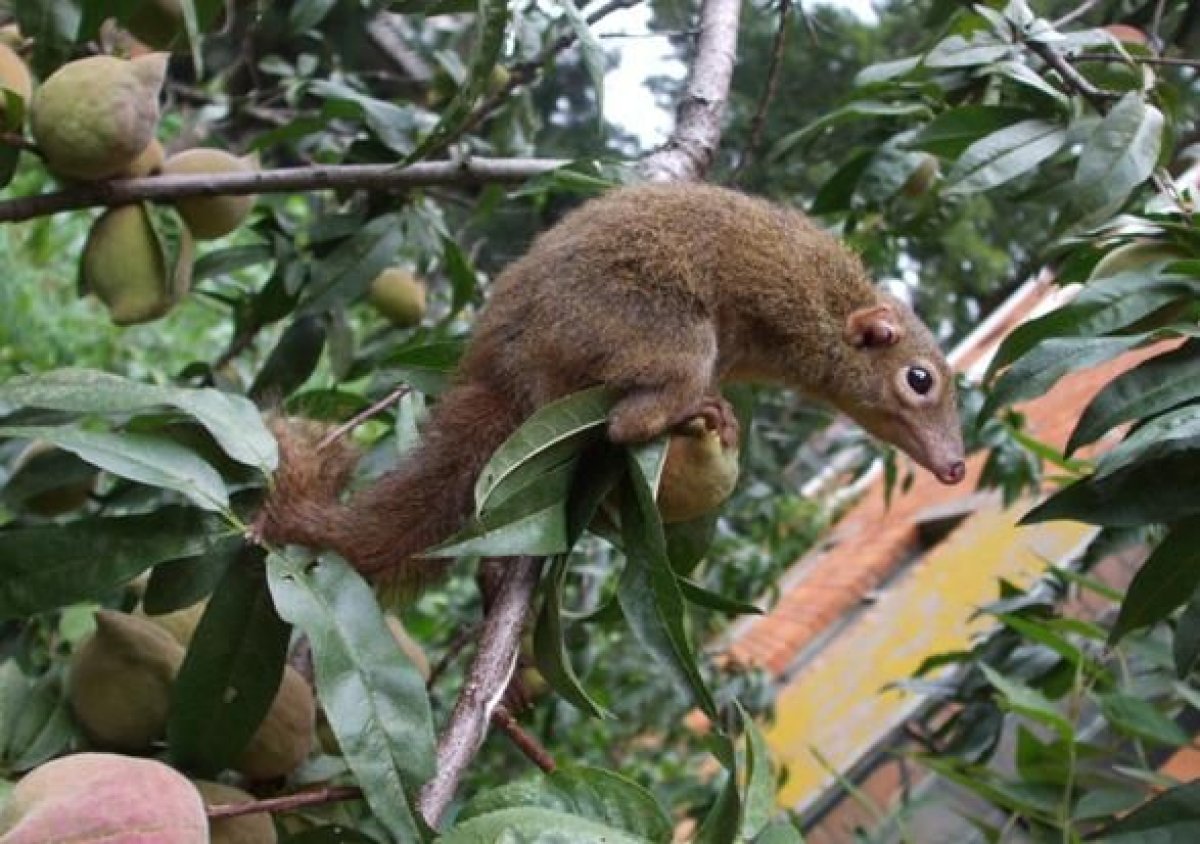Many plants contain pungent chemicals that deter animals from eating them. Among the more notable examples, the chili plant produces a fruit that contains a chemical called capsaicin that is off-putting to almost all mammals due to the sharp-burning sensation it elicits.
The tree shrew (Tupaia belangeri chinensis)—a small mammal species native to southeast Asia that's closely related to primates—however, apparently has no such problems.
To their surprise, researchers from the Kunming Institute of Zoology of the Chinese Academy of Sciences and Zhejiang University have observed the animal actively consuming chili peppers that were provided to them, seemingly tolerant of the spicy sensation.
The scientists analyzed the tree shrew's genes to understand why it was not sensitive to capsaicin like its mammalian relatives, and whether genomic changes or conditioning were responsible for their tolerance.
Capsaicin produces its unsavory effects by activating a receptor found in mammals known as TRPV1. In a study published in the journal PLOS Biology, the researchers found that a mutation in the tree shrew's TRPV1 receptor lowers its sensitivity to capsaicinoids, enabling it to eat the chili peppers without experiencing a painful reaction.
Because the chili pepper has been geographically isolated from the tree shrew until it was introduced to South Asia around 300 years ago, the researchers think that this mutation might have been driven by the presence of another spicy plant Piper boehmeriaefolium.
P. boehmeriaefolium, which produces an abundance of Cap2—an analog of capsaicin—overlaps geographically with the tree shrew's habitat. Over time, the tree shrew adapted to eating this plant as the beneficial mutation was selected for by evolution. This expanded its diet. thus giving it a greater chance of survival.

While the tree shrew has been observed eating the spicy food, humans are the only known species among mammals that deliberately seek spicy sensations from what they eat, the researchers said. Despite this, we are still sensitive to capsaicin.
"Humans have an acute sensitivity to spicy food, and many find it unbearable," the authors wrote in the study. "Nonetheless, with training, some have learned to enjoy the burning sensation elicited by consuming spicy food, which presumably also confers protection against bacterial and fungal infection in the human digestive system.
Uncommon Knowledge
Newsweek is committed to challenging conventional wisdom and finding connections in the search for common ground.
Newsweek is committed to challenging conventional wisdom and finding connections in the search for common ground.
About the writer
Aristos is a Newsweek science reporter with the London, U.K., bureau. He reports on science and health topics, including; animal, ... Read more
To read how Newsweek uses AI as a newsroom tool, Click here.








